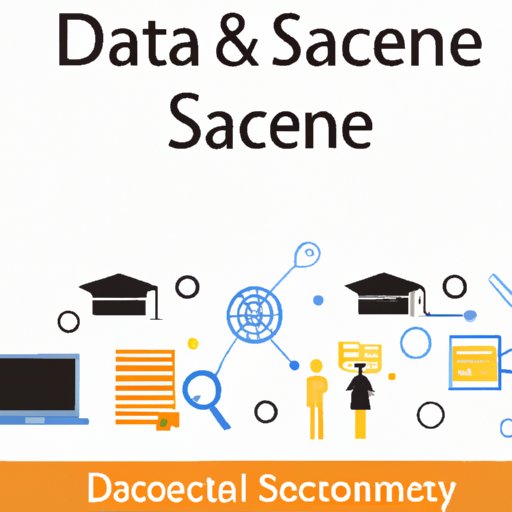Introduction
Data science has become one of the most sought-after fields in the technology industry, as organizations increasingly rely on data-driven decision making. With the demand for data scientists continuing to rise, many people are wondering if they need a degree in order to break into the field. In this article, we’ll explore the pros and cons of having a degree in data science, and provide advice on how to decide if a degree is right for you.
Definition of Data Science
Data science is an interdisciplinary field that uses scientific methods, processes, algorithms, and systems to extract knowledge and insights from structured and unstructured data. Data scientists use various techniques, such as machine learning, artificial intelligence, and statistical analysis, to analyze and interpret large amounts of data. They then use their findings to inform business decisions, solve problems, and create new products and services.

Overview of the Pros and Cons of Having a Degree in Data Science
Having a degree in data science can open doors to a variety of opportunities. A degree can give you the knowledge and skills needed to excel in the field, as well as demonstrate your commitment to the discipline. Additionally, a degree can give you access to professional networks and resources, which can be invaluable when seeking out job opportunities or advancing in your career. On the other hand, pursuing a degree can be costly and time consuming, and may not be necessary if you already have the skills needed to succeed in the field.

How to Succeed as a Data Scientist Without a Degree
If you don’t have a degree in data science, there are still ways to break into the field. Identifying the skills and certifications necessary to succeed in the field is essential. Many employers require specific certifications, such as SAS Certified Data Scientist or Microsoft Certified Data Scientist, so it’s important to research the requirements for the position you’re applying for. Additionally, exploring alternatives to a degree, such as bootcamps and online courses, can help you develop the skills you need without having to commit to a full degree program.

Comparing Different Types of Degrees That Can Lead to a Career in Data Science
There are several different types of degrees that can lead to a career in data science. Bachelor’s degrees in computer science, mathematics, or statistics are often seen as the entry-level requirement for data science jobs. Master’s degrees in data science, applied analytics, or other related fields can help you stand out from the competition and open up more advanced roles. Finally, doctoral degrees in data science or related disciplines can give you access to highly specialized roles and higher salaries.
Benefits of Pursuing a Degree in Data Science
Pursuing a degree in data science can provide several benefits. Having a degree can open up more job opportunities, as many employers prefer candidates with a degree. Additionally, a degree can lead to a higher salary potential, as those with a degree tend to command higher salaries than those without. Finally, having a degree can give you access to valuable professional networking opportunities, which can help you build relationships with industry professionals and increase your chances of finding a job.
Assessing if a Degree in Data Science is Right for You
Deciding if a degree in data science is right for you is a personal decision. It’s important to examine your goals and understand the cost and time involved in pursuing a degree. Researching available programs and talking to those already in the field can also help you determine if a degree is the right path for you. Ultimately, only you can decide if a degree in data science is worth the investment.
Conclusion
In conclusion, having a degree in data science can open up a variety of job opportunities and provide access to higher salaries and professional networking opportunities. However, it’s important to assess if a degree is right for you, as it can be costly and time consuming. There are also alternatives to a degree that can help you gain the skills needed to succeed in the field. Ultimately, the decision of whether to pursue a degree in data science is yours to make.
(Note: Is this article not meeting your expectations? Do you have knowledge or insights to share? Unlock new opportunities and expand your reach by joining our authors team. Click Registration to join us and share your expertise with our readers.)
